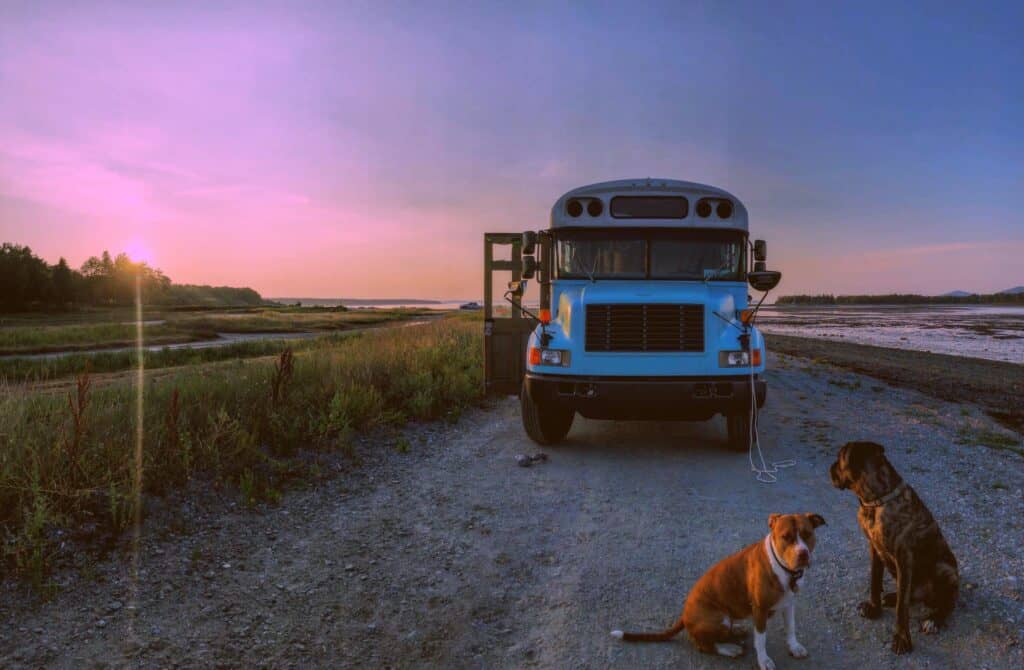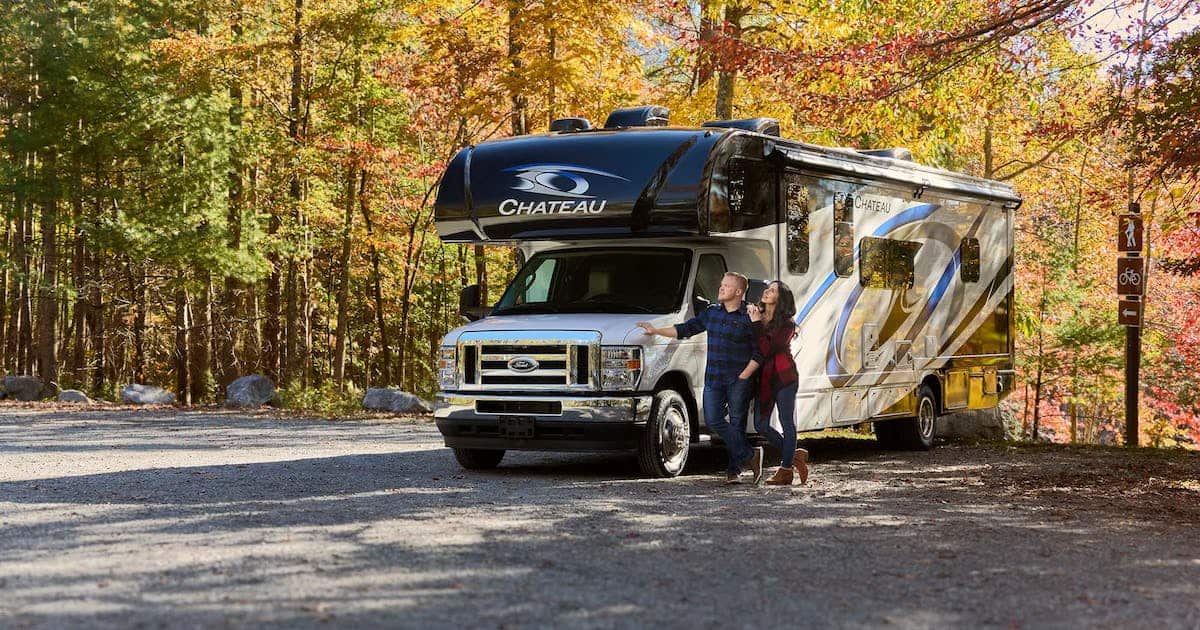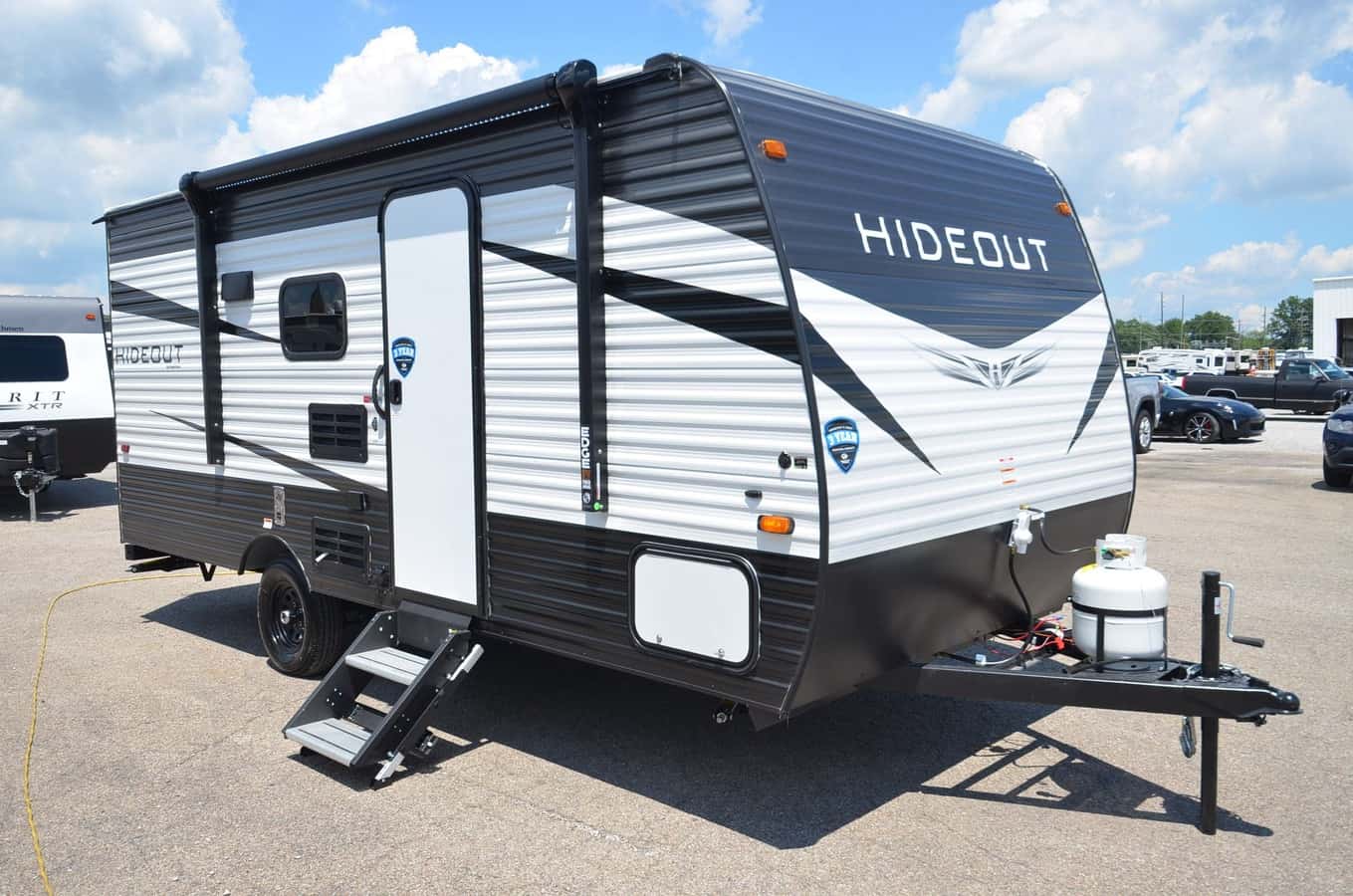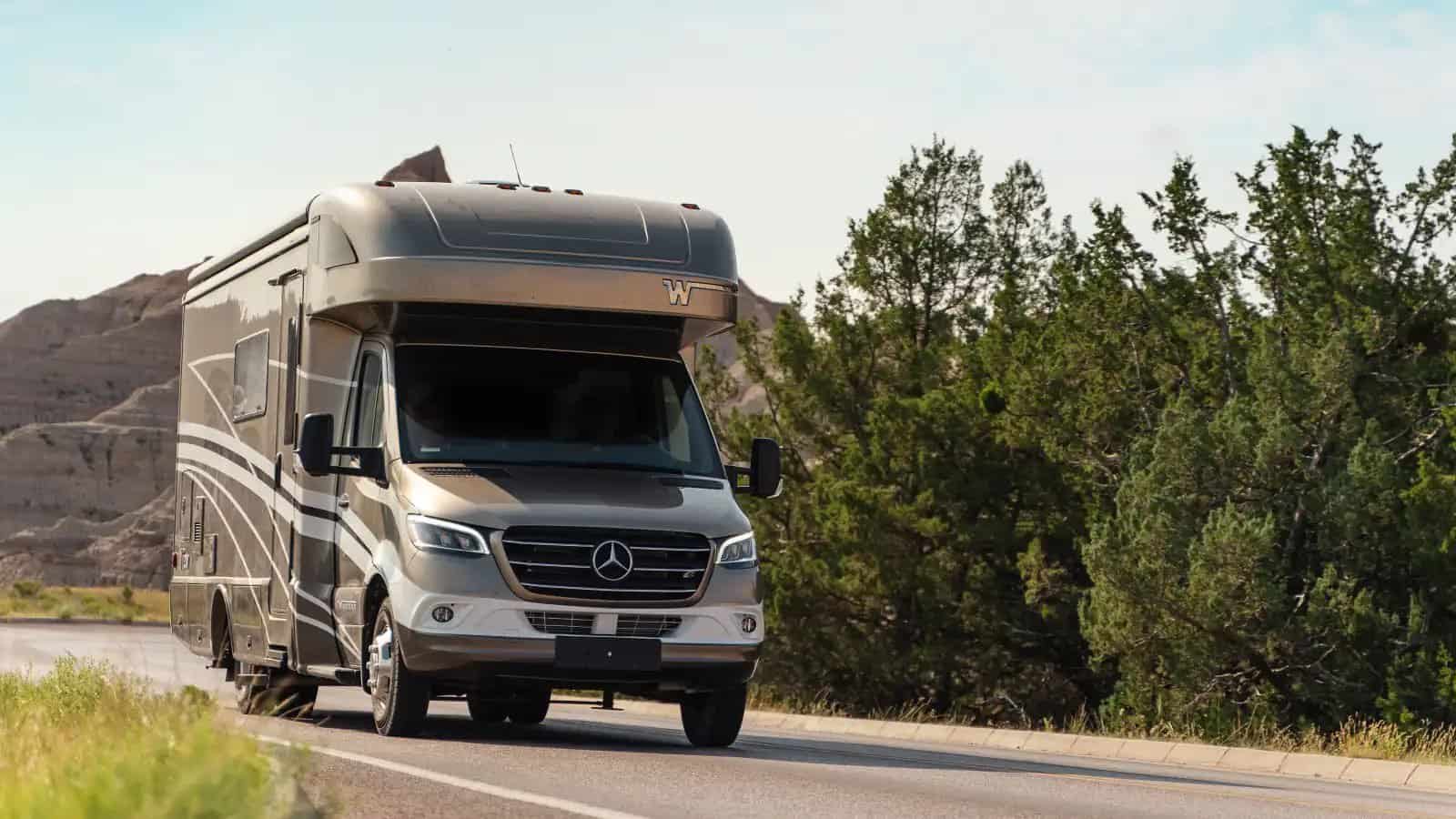
5 Reasons To Avoid Skoolies & Bus Conversions
There seem to be endless videos and websites online promoting skoolies that have sweet paint jobs and gorgeous interiors, made by enthusiastic RV owners who make it seem super easy to embrace the skoolie lifestyle. However, skoolies and bus conversion RVs definitely have some drawbacks. Here 5 reasons to you may want to avoid them.
1. Bus conversion RVs are very slow
School buses are built for taking kids to and from schools, and not driving on interstate highways. Skoolies have built-in speed control so they often top out at 65 mph on flat stretches of highway. In mountain terrain, skoolie can become road hazards.
2. Skoolies are expensive
Skoolies are built from buses whose best mechanical days are behind them. From their tires and brakes all the way up to their windshield wiper motors, buses are expensive to fix. Parts on an older bus can be difficult to find. This means however nice you make the interior, you will be faced with expensive repair bills, often when you least expect them.
When we first bought the bus in Bozeman, Mont., we had a massive breakdown on our way back home to Minnesota. We had to wait to be towed from the interstate to the nearest podunk repair shop in Gillette, Wyo. A motel stay and $2,000 later, we were up and running again and made it home
Kyle Nossaman, Gear Junkie
3. Skoolies can be uncomfortable
Poor ride quality and sluggish handling are typical for almost any bus conversion, due to their stiff suspension systems. Poor insulation and lack of furnaces and air conditioning make skoolies sweltering in the heat of summer and freezing in the cold of winter.
4. It is difficult to license and insure a skoolie
Insurance and licensing requirements can be difficult to navigate. Licensing requirements will require you to prove that your skoolie is no longer a commercial bus and is now a bonafide bus conversion RV.
Insurance companies view all nonprofessional bus conversion RVs with skepticism. A poll done by Trustedchoice.com found that 64.1% of all skoolie/bus conversion RV owners do the conversion work themselves, although they often don’t have electrical, plumbing, or other professional skills, so insurance companies are understandably concerned about the safety of these vehicles.
5. Many campgrounds don’t allow skoolies
No matter how nice your skoolie is, many campgrounds won’t allow them. Many RV parks want to keep up a certain image and have certain appearance and age-based admittance rules that require all RV guests to have manufactured RVs that are less than ten years old. You can learn more about the ten-year rule at RV parks in our previous article here.
Learn more before you decide on a skoolie
If you still want the extra space that a skoolie offers, do a good amount of research first on forums like Skoolie.net and with this useful book.





Had to laugh, I drive a schoolie and love it. But, my cousin (Female 62) made a living as a desil mechanic, so I have it made for repairs. She works for being allowed to tag along on most trips.
Very illuminating discussion, as one can often, but not always, find on the internet. Clearly, with both conventional RVs and Skoolies, there is a lot to consider. This includes honestly envisioning what one is seeking and what one is willing and able to do to achieve it. This is different for every one of us. When I retired almost 20 years ago I seriously considered both Schoolies and various types of RV as a new lifestyle. Ultimately, I decided that whiles the nomadic life had some attractions for me, having a sense of place, history and community fits me better. I ended up moving to a Caribbean island, buying some land in a small coastal town and building a modest house with view of the sea. Interestingly, my town is on a small bay which is a stopping point for many cruising sailboaters, some of who live on their boats and cruise the world. Talking to them reminds me of the attractions a nomadic life seeing the world. More than a few, having fufilled their dreams of sailing the seas, have ended up building or buying house and moving on land and eventually selling their boat. Life is dynamic and has its stages. Fortunately, most people can, if they want and dare, can choose to experience it in a wide variety of ways.
I have had 2 conversion buses. A 1980 Bluebird Wanderlodge and a 1961 GM 4106 Conversion bus. Before them we had a number of trailers and slide ins. We had an Airstream trailer. None of these vehicles are even half the vehicle our GM conversion bus is. If you have ever gone to an RV show you know that after about the 4th RV you enter you start to see how they all look the same. And the cost. An RV outfitted like our 1961 GM bus would run you about $75-85K. The materials used in our bus are like a high end apartment. We roll down the road in the lap of luxury. We get more compliments on our bus on a weekend than a cookie cutter RV will during its lifetime.
Also, people who convert buses do not drive them 50k miles a year – sometimes only a couple thousand or as many as 10K. They don’t take the wear and tear that a school bus in school use does, so will last much longer.
My wife finished out Schoolie conversion, and I couldnt be more proud of it #wildthingthebus on Instagram. We started about when covid hit, and finished this past month. Wev’e now had 3 shake out rides, the lots of things shook out, but were re-rebuilt. Now things are solid. Its completely off-grid, although I have a 20 amp shore plug just for emergencies. Ive learned so much during the build I cant even name everything, from mechanical, to plumbing to carpentry to solar to weird bus specific metal work. Would we do this again? Probably not, but sure as heck I would never, like ever buy a “RV” for 200k, which is what it would have cost us for a equal sized RV, that looks like a Disco inside. the young lady that posted this article is just a blogger, which is fine, I looked at her web site and it does appear like she is pushing the nornal RV industry. That’s fine too, but Id suggest not writing about something you have no knowledge about, unless she has rebuilt a schoolie herself. From reading this it does not appear she has, least Ive not seen any source citation for her observations. cheers!
This article is based on personal opinion and should be taken with a grain of salt.
Join a skoolie page and inform yourself. You’ll see it would be a great experience.
As for the other. No experience riding heavy equipment lol. I drive a truck full loaded 80k lbs, and we’re slow on the highway.
So please. Before you write something, at least write truth and not opinion if you are looking to give insight to others.
Hey name John beeler just got a coolbus and foam u talk about mobilemechanic @yahoo. Com no space all one word 541-879-9146 im the mobile mechanic that trails any and all evey were lol
I absolutely agree with you on a school bus conversion. My rear engine International 2002 before removing seats, I drove it from Atlanta to my home East of Tampa and it drove very well as it was very well maintained by school maintenance shop
I particularly like the rear engine type because the bus body is pretty much level. The woman aurthor apparently doesn’t know much about body construction between a manufactured RV versus the rigid duribility of a school bus. I don’t plan staying in RV parks or places where there is no privacy. I prefer BLM land for dispersed camping, like in Eastern Nevada and Western Utah. A skoolie is just fine with me and even though it is slower in operation, that means when there is a pileup on Interstate, I won’t be in it, I will be just coming up on it, saying to myself, yep they were all in a hurry to pass me up !!
Life is in the eyes of the beholder just like beauty is in the eyes of the beholder. Live a life that you believe is beautiful, be kind to the earth, waste not and make peace with the things you can’t change or make perfect. Skoolies are a brilliant way to repurpose materials which are in abundance. Recycle, reuse..revive. Humans create so much that gets thrown away, so, why not repurpose, which is the name of the game. All of the reasons written above can be managed. Get out there and live your peace.
I had a class a they suck they get stuck in the mud everywhere, everything is stapled together with shitty wood, most people I know build their skooliez with much better material and love. A typical RV is build in a day, they are junky and are only made for 43 trips, yep you read that right 43 trips.
I own a skoolie. It was the best decision of my life. Period.
the hardest part of doing up a skoolie. is having a place to park it for a couple years, while doing the work on it.
If you are going to build a skoolie, you must understand a few facts. (1) Don’t buy a rust bucket. You will spend a lot of time and money building it, so start with rust free. (2) 2006 and older buses do not have DEF emission fluid issues. (3) Find out what rear end differential gear ratio is, so you know whether or not it will travel at 65 mph without over reving the engine. Full size bus 488 ratio is perfect, but 617 ratio is to low geared and will get poor millage at top speed of 55. (4) If you gut the bus, then have spray foam professionally sprayed. Its a couple of hundred dollars more, but well worth it. (5) Paint your bus a pleasing and respectable color, so you don’t look like a 1960’s D-Bag. Good luck, and enjoy your new adventure.
What you WILL look like is a 2020’s D-bag.
I drive a school bus and my route is over 100 miles each day. I cruise at 75 on the Interstate and as of 2021 ALL school bus in New Mexico will have air conditioner. Have you ever see a commercial motor coach turned over. Pure junk .
Curious, have you ever lived in a home you yourself built? When you build it you know how it supposed to sound, move, bounce, act., etc. We currently live in an 98 m1078 lmtv that we built and converted. Much more difficult to get insurance for and even that only took a few days. Yes many people have no clue what they are doing but they are trying and that’s step one. I’d like the author to ask some questions of those who live in these converted vehicles and how we are succeeding in life so much better than we used to in our standard homes. I have personally built out two buses and we are considering a third now.
Thanks for this. As someone who is really drawn toward the obvious benefits of Skoolie life (i.e. smaller footprint, focus on family, travel, escaping the ‘rat-race,’ etc.), your words are encouraging, in stark contrast to this article! Hoping to meet some great people when we finally hit the road!
I did a conversion because the used RVs available were simply ridiculously expensive.
Because I did a conversion I ended up with a better job, driving school busses.
My conversion is easy to fix if anything goes wrong. I am in the midst of redoing the braking system myself (great learning experience) after a brakeline burst.
Yes, vehicle repairs can be costly but this is a medium duty truck chassis, not a Ford Fiesta. Having said that, there’s a lot you can do yourself.
Field Trip busses are faster than ordinary schoolbusses as they’re designed for interstate use. The vast majority of day to day school busses use roads with a maximum speed limit of 45mph. Only on interstates can they do 55mph. 55mph will get you there safely and economically – it’s not a race!
As for insurance – the title must match what you’re insuring it for. I insure mine as a school bus because that’s what it says on the maker’s plate and on the title. I carry nothing of any great value inside. I have not done a glamping conversion as I’m not a glamper. Insurance is dead easy until you decide to fiddle and try falsely to claim it’s an RV. It was a school bus, is a school bus and always will be a school bus no matter what is inside.
Some school busses do have AC and heat while driving. Some do not. As for being stationary there are many ways to include heat and AC into a conversion – if you want to bother. Again, I did not bother. If it’s hot then I’ll park up a mountain where it’s cooler.
I see no evidence of school busses being road hazards in the mountains. That’s looks just to have been thrown out as an “I don’t like school bus conversions” comment.
As for campgrounds – I’ve never had an issue of being turned away. On the other hand. my skoolie is painted very plainly, clean with new lights and is well maintained. There is no exotic paint and there are no exotic external additions. Not even solar panels on the roof.
“Most women are not mechanics or even mechanically inclined”? That’s….. an interesting opinion. Where on earth did you get that idea? Have you known a lot of women in your life? There are a lot of women in the world.
….. You’re from a much, much older generation, aren’t you.
Not much older but NAIEV!!! I have known many women that are better mechanics than men. Yes I am “older”
I’m an older generation….68. I’m mechanically inclined. Everybody stop with saying things about everybody just because you’re on the ‘net!
This list is silly. I personally have experience in this, so I’d like to correct some things here…
First and foremost, Skoolies, RV’s, and any other large vehicles such as box trucks or semi trucks aren’t made for speeding. No one driving a Recreational Vehicle is under the impression that they will be flying down the freeway at mach speed. I’m pretty sure commercial built motorhomes don’t do 90 either. So, that’s a pretty obvious given. The reduced speed capacity doesn’t automatically translate into a road hazard. lt’s the same as any other vehicle… if you take care of it and have it serviced properly and know the vehicle and it’s mechanics and limitations, you can dramatically reduce the risk of break downs and problems etc.
Second, Skoolies are only as expensive as the owner wants to make it. Buying a retired bus is ridiculously cheap. I bought mine for $2500. With everything we’ve built and installed, we’ve spent around $15,000 total. You can’t buy an RV with that kind of money. And RV’s are often built like crap and don’t work properly, have horrible warranty policies, are a pain to repair. (My parents have a brand new Travel Trailer and not once has everything in it worked at the same time, the dealer never has the parts they need to have replaced, and it’s expensive as heck to fix anything.) When you build out a Skoolie Conversion yourself, you have the luxury of knowing the ins and outs of the entire structure down to the wiring and insulation. You have control over what type and quality of materials that are used, and subsequently get to design the layout however you want. You don’t have those kinds of options with traditional RV’s. As far as replacement parts, they are absolutely easy to find. Any place that sells retired school buses generally has a warehouse of parts that they strip from immobile models. Online sellers and scrap yards are great and cheap resources as well. Tires are pricey, but everything else is relatively reasonable and what you would expect. There is wear and tear the same way that there is in a regular home. Water heaters, roofs…they don’t last forever, right? The building elements and appliances of a skoolie build age out just the same as they would in your house.
No heat or A/C? Many buses do come equipped with at least heat, however, a lot of people who build skoolie conversions install their own and can have just as sophisticated systems as a normal house would. And due to the small space, it’s relatively easy to cool or heat quickly. The ride quality isn’t uncomfortable at all, especially if your skoolie is furnished with furniture. The rides can be noisy, however, especially if you have a flat nosed bus with an engine in the front interior area. So again, it’s as comfortable as you make it.
Proving your bus is an RV is really simple. The insurance company just asks you to have certain things in place and then send them photos. Done. The hard part is finding the two insurance companies in the country that insure Skoolie conversions. You are best off finding a local agent that can customize your policy. Most companies don’t have policies for “skoolies” but there are absolutely loopholes for getting this done. You just need the right agent who knows their stuff and is willing to help.
I keep hearing that campgrounds don’t allow skoolies but I have never been turned away from anywhere. Concrete RV parks are not campgrounds, and they have their own set of discriminatory rules that don’t only apply to skoolies. I’d also go as far as to say that most people interested in Skoolies are generally not interested in staying at RV parks anyway… so the pretentious rules don’t really apply here.
Overall, I’d guess that the author hasn’t actually had experience owning or traveling in a skoolie. I’m curious as to why the goal is to steer people away from them? Is it hard work? Absolutely. Is it for everyone? Of course not. But categorizing Skoolie travel as the wrong way to do it…is just plain weird. For me, working on a build has been really cool because not only have I learned so much about construction, but I have built an arsenal of skills that I didn’t have prior, and I have a level of confidence in myself that could never be acquired by letting someone else do the work for me. That alone is a reason I’m glad I did it. Even if we sold it tomorrow and bought a normal house, I would never regret what I’ve learned. So, I hope others reading this are not discouraged! Keep building skoolies!!! 🙂 <3
Yes! Thank you ..I needed this🤙🏽✊🏽🙏🏼❣
Excellent reply!
Wow such inspiration Tiffany Thanks time to move forward with R&D 💪🙌😎
“I’m curious as to why the goal is to steer people away from them? ”
I can answer that question. The RV builders know their products are built like crap and they know there is a large movement of people converting buses….. all kinds of buses not just skoolies….. and they’re losing business. They employ shills to hit social media with horror stories and such.
I’ve seen the construction methods they approve. They are horrid.
Before anyone buys an RV industry trailer or motorhome they need to go to youtube and watch two types of videos for a few hours.
RV crashes & Bus accidents
You’ll find that when any kind of RV industry rig crashes, your underware are spread all over the road and the “structure” disentigrates.
You’ll also see that even when a school bus rolls over a cliff….. it’s intact minus some broken glass.
All I have to say is TOUCHE’
I own a 5 window skoolie, bought it from a school district in Tennessee, and I wouldn’t trade it for any other kind of camping vehicle. Not one thing on this list applies to my experience. Thanks for this thorough response.
You are so right—I just read the 2018 incident posted on Rip-Off Report about Skoolie Homes in Kingsport TN—they put the customer through a nightmare even after spending 50K…
Skoolie Homes also has for sale listings of amateurs who started on a conversion and now claim for sale because “their plans have changed” is the usual excuse…
Sale beccause their plans have changed means they’ve put enough work in that they think they can sell and make a profit.
Caveat Emptor – we used to use that you know.
Yes there are unscrupulous companies out there. There’s another in TX “Lonestar skoolies” that are going to end up in jail for negligent homicide with their electrical systems.
These companies exist because people with money don’t want to do the work and scum bags take advantage of them. It’s not even relevant to the article as most skoolies are built by the owners.
You’ve listed the CONS and they seem reasonable. However, can you list an equal amount of PROS…’5 Reasons to Choose a Skoolie or Bus Conversion’. It helps to have a well-rounded view and help me and others make a more informed decision as a future traveler.
Thanks
Benjamin Staley
USMC/USAF Disabled Veteran
Semper Fi.
Building our 40′ RE now. None of what this article said is even remotely applicable to us and our rig.
To each, his or her own. Most women are not mechanics or even mechanically inclined. So, any man mechanically inclined won’t be converting a school bus to an RV without making sure it is of quality for safe operation. Newer school buses have air ride suspension, have airconditioning and acoustic ceiling. School buses are better constructed structurally, whereas motorhomes are made of fiberglass ( burn rapidly in case of a tire fire or engine fire ). I’ll stick with mostly metal school bus conversions to an RV.